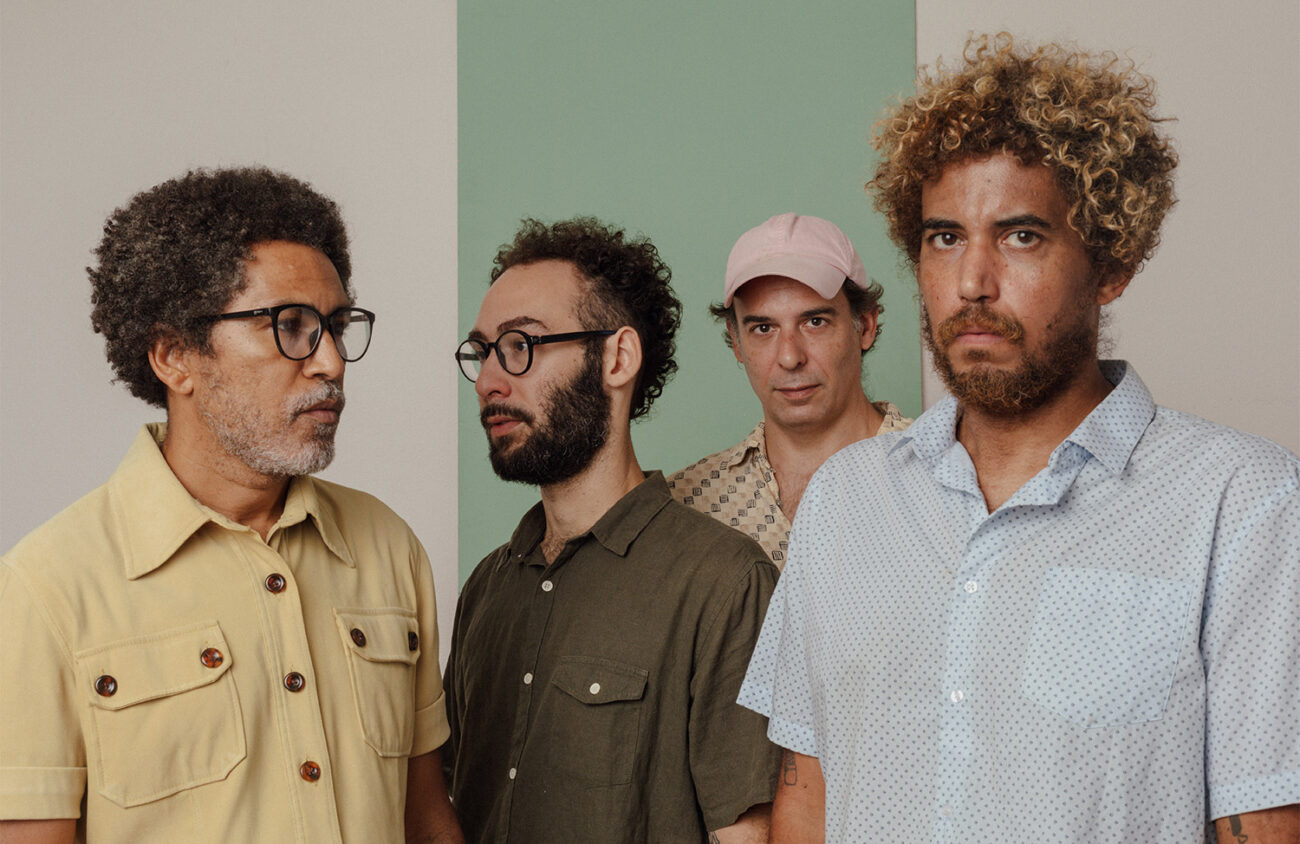Oruã’s songs — referencing Krautrock groups like Can and ’60s-era psychedelic Brazilian garage bands like Os Mutantes — typically start with improvisation. “Many of our tracks come out of themes or loops we spent time exploring,” the band’s singer and guitarist, Lê Almeida, tells Eugene Weekly in an email.
Oruã performs in Eugene July 25, supporting their brand-new album Passe.
Oruã formed in Rio de Janeiro in 2016, Almeida says. The current lineup has played together since 2023, with Bigú Medine on bass and vocals, João Casaes on synthesizers and Phill Fernandes on drums.
Since 2016, Brazil has undergone massive political upheaval. Notably, the 2019 election of Jai Bolsanaro, the right-wing president who is often compared to Donald Trump. Oruã reflects these themes in its work.
For instance, “Real Grandeza,” off Passe, was inspired by a true story: a white burglar in an upscale Rio neighborhood not suspected because of his race. On that theme, a music video for the Passe song “Caboclo,” out July 18 — the same day Passe is released —“tells a typical story of rage and race in Brazil,” Almeida says.
Also from Passe, “Grandeza” is layered guitars with Almeida’s high tenor submerged in the mix, suggesting Built to Spill. In 2019, Oruã toured Brazil with the Pacific Northwest indie rock legends from Boise, opening new vistas for Almeida’s songwriting. He later collaborated and mixed songs with Built to Spill’s leader, Doug Martsch, on Built to Spill’s 2022 release, When the Wind Forgets Your Name.
Almeida was born in one of Rio’s most economically underprivileged areas, and he started playing music as a teenager, inspired by Sonic Youth and Yo La Tengo.
“I started playing drums and then had a few brief lessons on chords and started playing guitar. The world of home recording has always been my universe. Spending entire weekends recording at home was my world,” he says.
Early on, Almeida also loved populist traditional Brazilian music icon Luis Gonzales, and over time, he discovered Fela Kuti. “I always saw the music of these artists as something very close to freedom,” Almeida says.
Now, Almeida runs Transfusão Noise Records, a crucial Rio DIY label. “Music for me has always been far beyond what we hear,” he adds. “Music can make you cry and smile very easily. I love it.”
Dad Bod, a Salt Lake City band, joins Oruã as co-headliners behind their 2024 album, Loop de Loop Miracle Ministries Lords of Glory. As their name suggests, Dad Bod revives classic dad rock with folk-rock vocal harmonies, an edge of contemporary indie rock and easy-going keyboard and horn arrangements.
According to Almeida, rock genre concerts sometimes don’t sell well in Brazil, so it’s easier for his band to tour the U.S. “This has meant that we’ve played more shows outside our country than in it. We’re poor, and traveling the world is a possibility that only our profession as musicians has given us. We’re extremely grateful for this, and every year, we learn how to make these trips good and profitable,” he says.
